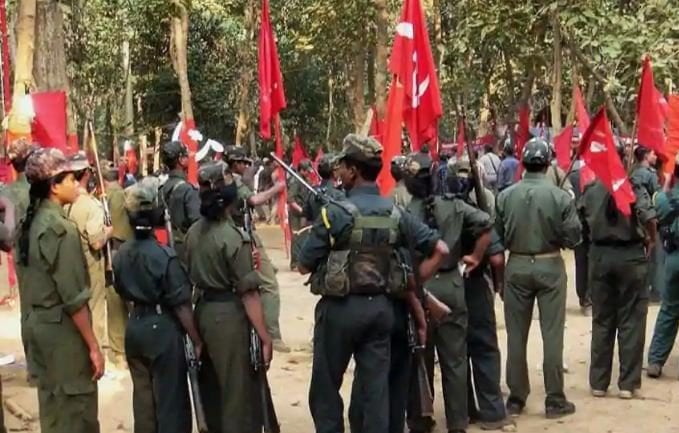
Maoists debate over red corridor in south India's tri-junction
After a series of encounters since 2016 in the tri-junction region adjoining Kerala, Tamil Nadu and Karnataka, killing six people in a span of three years, people who parted ways with Maoists a couple of years ago said that there has been a debate among the Maoists over the red-corridor in southern India.

After a series of encounters since 2016 in the tri-junction region adjoining Kerala, Tamil Nadu and Karnataka, killing six people in a span of three years, people who parted ways with Maoists a couple of years ago said that there has been a debate among the Maoists over the red-corridor in southern India.
Speaking to The Federal, a former Maoist, who did not want to be named, said that a section of Maoists camping in the tri-junction region have been reconsidering their stand on expanding their base further in southern India.
“The debate over the expansion of the base cropped up after Maoist leader Kuppu Devaraj and Ajitha were killed in an encounter in Nilambur forest region in November, 2016. During a discussion, most of the Karnataka cadre and few from Kerala felt that it was a wrong move to set up a corridor in south India,” the former Maoist said.
And since there weren’t any conclusive decision taken in the discussion, three Karnataka cadre, namely Kanyakumari, Suma and Shiva surrendered before the Karnataka police under the surrender policy. “However, those in Kerala and Tamil Nadu stood firm and believed it as a right move,” he said.
“The ongoing debate among the Maoists in the tri-junction region has reduced the active participation of people from south India and there has been no fresh recruitment in recent years,” he alleged.
Also read | Why South’s red corridor has more Naxal cadre from Tamil Nadu
Attapadi Adivasi Action Council leader Murugan echoed a similar view and said that Maoists were prepared to surrender after discussing it with the leadership.
Another Adivasi leader in the region, Shivani, who was privy to the developments, said that police had held talks with the Maoists, Manivasagam, Aravind and Kalidas, through mediators.
“They were willing to surrender and a report regarding this was submitted to ASP Navneet Sharma, who initiated the process. However, the process was stopped after he was transferred,” Shivani told The Federal.
However, Maoist PA Shyna, who was arrested in Coimbatore and is now out on bail, rubbished the claim that the Maoists were willing to surrender and said that they would not have such plans since they all know the consequences.
“They all know what had happened to Kanyakumari, a Maoist from the tri-junction region who surrendered before the Karnataka police. She is still in prison and she is facing over 30 cases. Police are not ready to let her go. She is suffering from serious health issues but is not receiving proper treatment,” Shyna claimed.
Also read | The ‘left has turned against the left’ in Kerala encounter killings
Another former Maoist, J Vivek, who was arrested in 2012 and released after serving five years in jail denied the claims that many Maoists are ready to surrender. “The squad in the tri-junction region is weak and they are not in a position to start a fight with the armed forces. But, a senior Maoist like Manivasagam, who has been in the movement for over 30 years, will not even think of surrendering,” he said.
Though Vivek confirmed that there could be a debate on the ideological stand, he claimed ignorance about a debate over reconsideration of expanding the base.
Former Maoist and Porattam movement’s convener MN Ravunni in Palakkad confirmed that there is a debate among sections of the Maoist movement about restructuring the party across the country.
“They may not debate about whether to have a red corridor or not, but there are debates over Bolshevization of such movements across the country,” he said.
It may be recalled that the Kerala government had rolled out a surrender policy for the Maoists in May, 2018. According to the policy, Maoists in the higher committees of the party will get about ₹5 lakh upon surrendering while those in the lower rung will get ₹3 lakh in various instalments.
However, the Maoists had rejected the surrender policy in October, 2018.
Also read | Kerala HC directs police to conduct probe into killing of two suspected Maoists
In their mouth piece Kanalpatha, published from Nadukani Dalam (one of the Maoist bases) in Tri-Junction, they had asked whether CPM state secretary Kodiyeri Balakrishnan and Chief Minister Pinarayi Vijayan would abandon their political activities if they are offered money.
Ever since the policy was announced, not a single Maoist had surrendered before the Kerala police.

